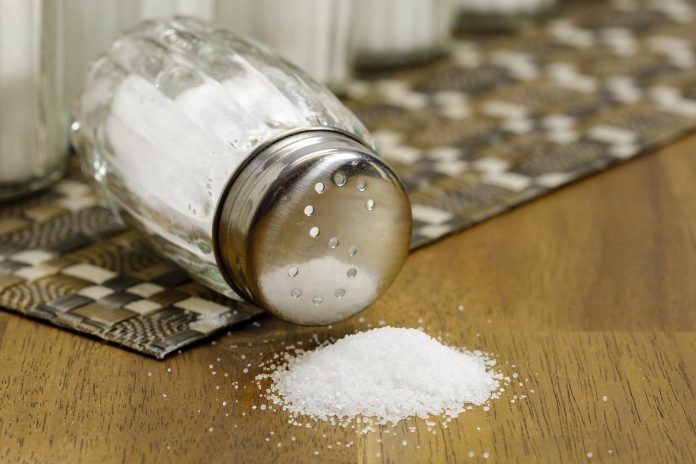
In a study from the Queen Mary University of London, scientists found that a modest cut of just 1 gram in daily salt intake could ward off nearly 9 million cases of heart disease and strokes and save 4 million lives by 2030.
Salt intake in China is one of the highest in the world, averaging 11 g/day—over twice the amount recommended by the Chinese government.
High salt intake drives up blood pressure and therefore the risk of cardiovascular disease, which accounts for 40% of all deaths in China every year.
In the study, the team compiled the latest and most reliable figures for population size, salt intake, blood pressure, and disease rates by region and age.
They focused on three strategies. The first of these was a 1 g/day reduction in salt intake to be achieved within 1 year.
The second was the WHO’s interim target of a 30% reduction by 2025—equivalent to a gradual reduction of 3.2 g/day.
The third was reducing salt intake to less than 5 g/day by 2030, the target set by the Chinese government in its action plan for health and development, “Healthy China 2030.”
They then estimated the falls in systolic blood pressure—the higher number in a blood pressure reading that indicates the force at which the heart pumps blood around the body—and the subsequent risk of heart attacks/stroke and cardiovascular disease deaths.
The team found reducing salt intake by 1 g/day should lower average systolic blood pressure by about 1.2 mmHg.
And if this reduction were achieved in a year and sustained, some 9 million cases of heart disease and stroke could be prevented by 2030—4 million of them fatal.
Keeping this up for another 10 years could add up to around 13 million cases of heart attack and strokes avoided—6 million of them fatal.
Achieving the WHO’s interim target by 2025 would require a 3.2 g/day fall in salt intake. Were this to be maintained for another 5 years, a cumulative total of about 14 million cases of heart disease and strokes could be prevented by 2030—6 million of them fatal.
And if kept up until 2040, the cumulative total could reach around 27 million cases, 12 million of them fatal.
Achieving the “Healthy China 2030” target would require a 6 g/day reduction in salt intake, reducing average systolic blood pressure by just over 7 mmHg, adding up to 17 million cases of heart disease and strokes prevented—8 million of them fatal.
The team says the benefits of a reduction in dietary salt intake would apply to men and women of all ages across China.
There might also be additional health benefits, including prevention of heart disease and reductions in cases of chronic kidney disease and stomach cancer.
If you care about stroke, please read studies about what to eat for stroke prevention, and small surgery can prevent strokes in people with heart issues.
For more information about heart health, please see recent studies about drug combo that can cut the risk of stroke and heart attack by half, and results showing drinking coffee this way may prevent heart disease and stroke.
The study was conducted by Monique Tan et al and published in BMJ Nutrition Prevention & Health.
Copyright © 2022 Knowridge Science Report. All rights reserved.



